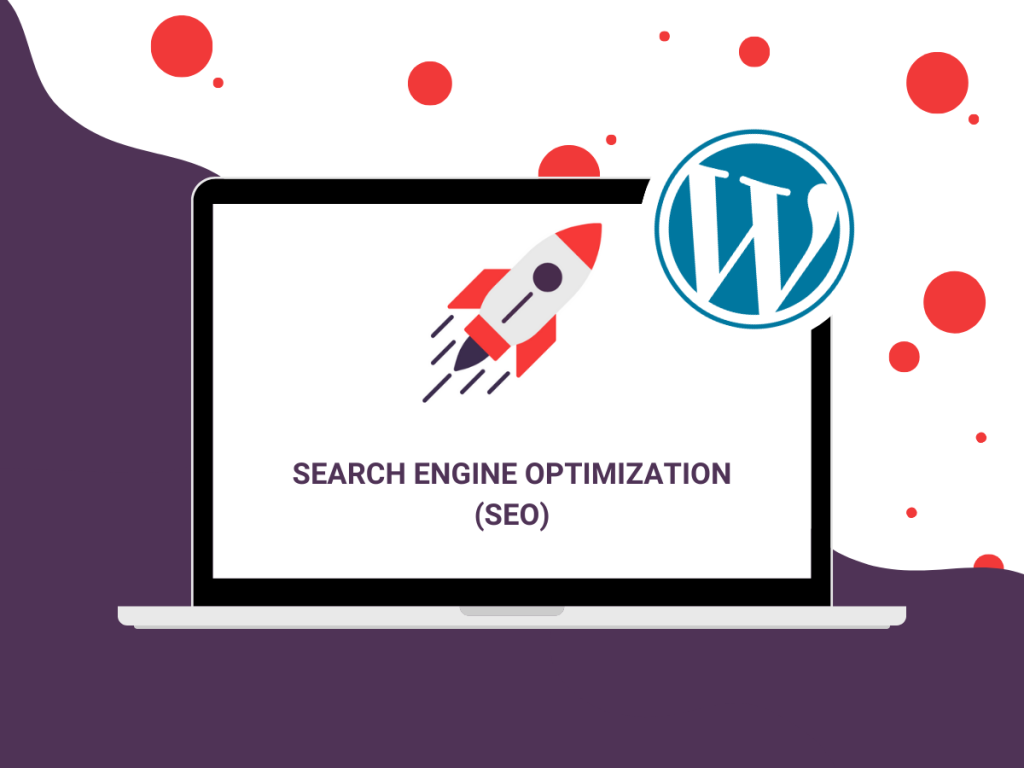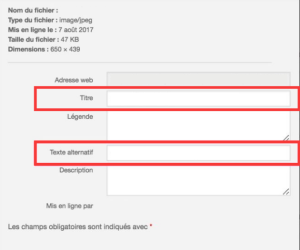
Structuring your WordPress website is a crucial part of SEO. To achieve this, it’s essential to create a solid taxonomy.
But what does taxonomy mean in the context of WordPress? It involves sorting content, which means assigning categories or tags to your pages and articles.
Creating a good taxonomy contributes to optimal SEO performance by providing more information to indexed pages and articles. Additionally, it’s possible to design a URL structure with taxonomy, but be cautious, as this can also become a hindrance to the SEO of your pages if poorly constructed!
Crafting Impactful Content

Crafting impactful content for your website involves, first and foremost, researching high-potential and high-volume keywords. These keywords should be related to your business, products and services. Various tools like Semrush, Ubersuggest, or Moz indicate keywords for which your website is already indexed and those you can work on.
Once these keywords are identified and analyzed, you should enrich the pages of your WordPress website with high-quality content that incorporates these searched keywords. It’s crucial to align your content with the theme of your pages. A good container with good content is key to quality SEO!
Therefore, it’s essential to introduce these keywords into all your titles (H1 and H2), as well as in your paragraphs. Search engine robots will understand the importance of the highlighted keywords, enhancing the indexing of your website for relevant searches!
Optimizing Metadata to Boost SEO
To boost the natural SEO of your WordPress website, tags must include high-potential and high-volume keywords.
Metadata includes the title and the short paragraph visible on search engines. To make them impactful on Google, certain standards must be followed:
- Metatitles should range between 40 and 60 characters.
- Metadata should range between 140 and 160 characters.
By following these recommendations, search engines will display your entire text to users and, perhaps, get you to appear first on Google!
WordPress makes it easy to determine if your metadata is optimized through the YOAST extension. This tool indicates whether your tags are optimized using a simple color code:
- Green: Metadata meets standards and includes keywords.
- Orange: Metadata could be slightly more optimized by reducing their size or adding a keyword.
- Red: Metadata does not comply with standards or includes no keyword.
Completing ALT Attributes for Images
An ALT attribute describes an image. Search engine robots cannot analyze images and what they represent. Adding ALT attribute helps robots understand what the image refers to and makes it stand out during a search.
In WordPress, once you upload an image, you will automatically be prompted to provide more information about your visual. To have this visual referenced in search engine images, we recommend giving it a title and filling the ALT attribute with relevant keywords. After completion, your image may surface when a user searches for the associated keyword on search engines!

Implementing Internal Linking
Incorporating internal linking helps extend user visits across multiple pages on your WordPress website.
Internal linking involves creating links between different pages of your website. It also prevents having orphaned pages. Proper internal linking also helps increase your website’s visibility on search engines and enhances the chances that users will browse multiple pages of your website.
To optimize the internal linking of your WordPress website, focus on users and SEO. Links should be coherent with the topic to create quality linking recognized by Google. Ultimately, this will optimize the user experience, as your visitors can navigate to other website pages through the corresponding links.
And there you have it! Now you know the key elements that will boost the indexing of your keywords and, eventually, the SEO performance of your WordPress website!
Continuous improvements are essential to bear in mind. Monitoring the evolution of your keywords and staying up-to-date with changes in search engine algorithms is important. Engaging a digital marketing agency is recommended for optimal and long-term SEO optimization.
Looking to optimize the SEO of your WordPress website? Ursa Marketing is here to guide you and assist you in achieving your goals. Contact us, and let’s create impactful SEO for your website together!